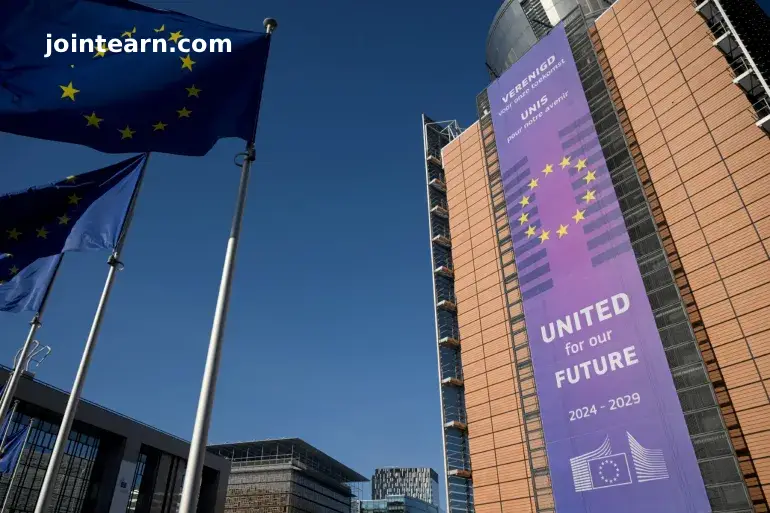
The European Union has announced plans to ease its strict artificial intelligence (AI) and data privacy regulations, a move aimed at accelerating innovation within the bloc while navigating growing pressure from tech giants and political figures, including former US President Donald Trump.
The reforms, unveiled by the European Commission on Wednesday as part of the so-called “Digital Omnibus” package, mark a significant adjustment to the AI Act and other privacy and digital laws. The proposed measures are designed to reduce regulatory burdens on businesses, particularly start-ups and small-to-medium enterprises (SMEs), while maintaining core principles of data protection.
“We have talent, infrastructure, a large internal single market. But our companies, especially our start-ups and small businesses, are often held back by layers of rigid rules,” said Henna Virkkunen, EU Commissioner for Technology and Innovation. “These reforms aim to simplify rules around AI, cybersecurity, and data protection, boosting Europe’s competitiveness on the global stage.”
Key Changes in the Digital Omnibus Proposal
Under the reform package, the EU would:
- Delay stricter rules for “high-risk” AI systems until 2027, giving companies more time to comply with oversight and risk-management requirements.
- Allow the use of anonymized personal data for AI training, reducing restrictions on data utilization for model development.
- Reduce cookie consent pop-ups and documentation requirements, particularly for SMEs, in order to cut compliance costs.
- Introduce flexibility in cross-border digital operations, aiming to prevent conflicts between EU and international regulations, including copyright and data transfer rules.
These changes reflect the EU’s attempt to strike a balance between fostering AI innovation and upholding its longstanding reputation as a global leader in digital rights and privacy standards.
Big Tech and Political Reactions
The proposals have elicited mixed responses. Lobbying groups representing US tech giants, including Google, Apple, and Meta, welcomed the reforms but criticized the package for not going far enough.
“Unfortunately, the Omnibus misses critical opportunities to raise the outdated compute threshold for identifying AI models which pose a ‘systemic risk’, and fails to fix problematic wording on extraterritorial copyright provisions,” said the Computer & Communications Industry Association (CCIA).
Meanwhile, privacy advocates criticized the changes as a concession to industry interests. Max Schrems, founder of NOYB – European Center for Digital Rights, described the reforms as “the biggest attack on Europe’s digital rights in years,” arguing that the commission’s assertion of maintaining high standards is misleading.
Legal scholars also weighed in. Gianclaudio Malgieri, associate professor of law and technology at Leiden University, warned that the reforms could shift the EU model away from its traditionally rights-based approach to AI regulation toward a more permissive, industry-driven framework.
“If adopted as they stand, these reforms risk moving the EU model closer to a more permissive, industry-driven approach to AI and data use, at the very moment when the world is watching Europe to see whether it can offer a real alternative,” Malgieri said.
Implications for EU Innovation and Global Tech Competitiveness
The EU has long sought to differentiate itself from the United States by adopting strict data protection laws, including the General Data Protection Regulation (GDPR), and stringent AI oversight. Critics argue that overly rigid rules have slowed AI development and tech competitiveness within the bloc, prompting the current reforms.
By introducing more flexible regulations, the European Commission hopes to encourage innovation in AI applications, attract investment, and ensure that European companies remain competitive globally while still upholding key ethical and privacy principles.
The reforms now await review and approval by representatives of all 27 EU member states, a process that will involve intense negotiations between policymakers, privacy advocates, and industry stakeholders.
“The challenge will be finding a balance between innovation, safety, and citizens’ rights,” said Virkkunen. “We want Europe to be a global leader in AI, but not at the expense of our values and protections.”
The Digital Omnibus initiative reflects the EU’s broader ambition to foster responsible AI, while addressing pressures from Big Tech, the US government, and internal industry stakeholders seeking regulatory relief.


Leave a Reply